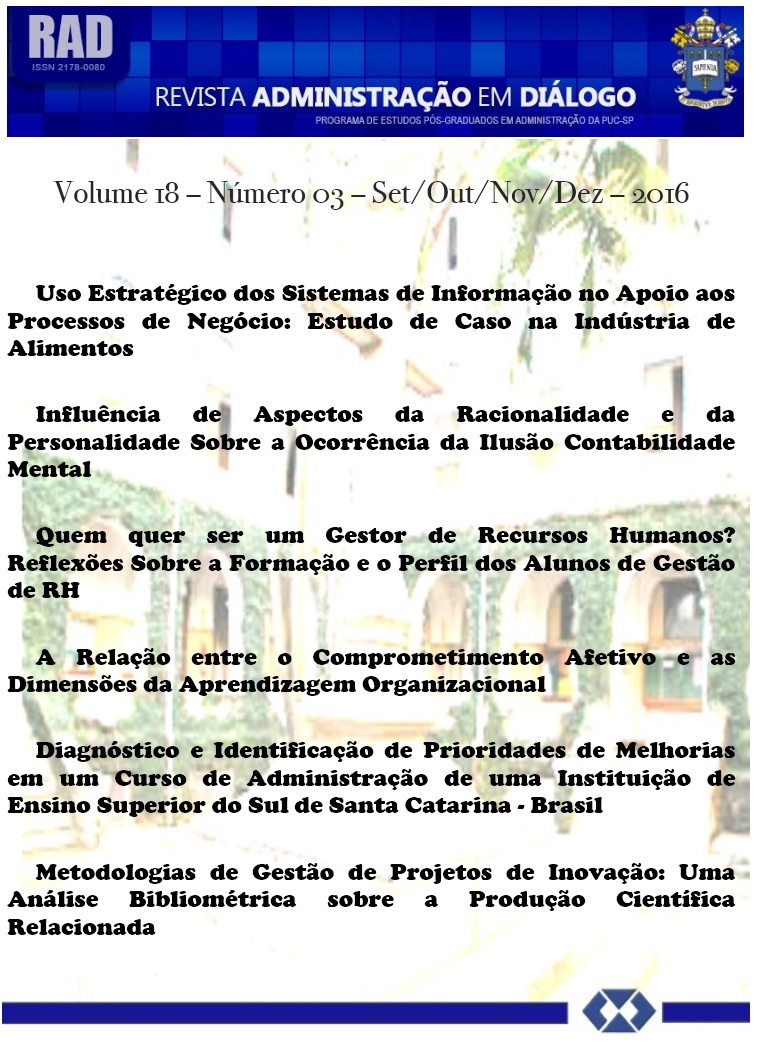Quem quer ser um Gestor de Recursos Humanos? Reflexões Sobre a Formação e o Perfil dos Alunos de Gestão de RH
DOI:
https://doi.org/10.20946/rad.v18i3.19493Palavras-chave:
Gestão de Recursos Humanos, Formação Profissional, EducaçãoResumo
Uma pesquisa exploratória identificou o perfil e as motivações dos estudantes de um curso de MBA em Gestão de Recursos Humanos (RH) com o método descritivo e explicativo, através do levantamento bibliográfico e pesquisa de campo, aplicando um questionário online. Os resultados apontaram a preponderância de estudos sobre as competências dos profissionais de recursos humanos. Os questionários indicaram que os alunos eram majoritariamente do sexo feminino, com idades entre 26-31 anos e graduações em Psicologia e Pedagogia. Suas motivações centraram-se no aprimoramento profissional, em estudar em uma universidade de prestígio, visando um emprego na área. Embora o corpo docente tenha sido destacado como o ponto forte do curso, o aspecto mais criticado foi o conteúdo das aulas, consideradas muito teóricas. Em conclusão, os alunos manifestaram a necessidade de uma capacitação integral para trabalharem na área de RH.
Métricas
Downloads
Publicado
Como Citar
Edição
Seção
Licença

Este obra está licenciado com uma Licença Creative Commons Atribuição 4.0 Internacional.







